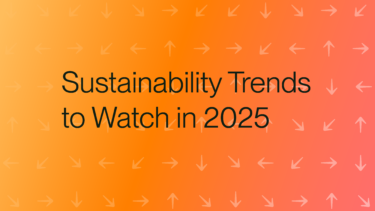
This summary was written in response to the recently released Recommendations and Guidance on Financial Institution Net-zero Transition Plans report from the Glasgow Financial Alliance for Net Zero (GFANZ).
Introduction to the GFANZ report
A report issued today by the world’s largest coalition of financial firms provides pan-sector, granular guidance on how to reach the ambitious and essential goal of achieving net zero carbon emissions by 2050 or sooner. The much-anticipated report by the UN-sponsored Glasgow Financial Alliance for Net Zero (GFANZ) is simultaneously encouraging and disappointing.
GFANZ is a private sector-led initiative comprised of over 500 member firms from across the finance industry overseeing a combined $130 trillion in assets. In partnership with the UN-backed Race to Zero Campaign, the influential GFANZ coalition was established 18 months ago by former Bank of England Governor Mark Carney and is funded by philanthropist and UN Special Envoy for Climate Ambition Michael Bloomberg.
This author, Anthesis Principal Consultant Liam Kelley-St. Clair, has unique insight into this report, having represented CDP as an advisor to the GFANZ workstream tasked with developing a voluntary framework for how the alliance’s members and the wider financial sector should implement ambitious and credible net zero transition plans. GFANZ’s new 100+-page document – the output of this workstream – is still in draft form and open to public comment until July 27th.
A step beyond TCFD
GFANZ commendably offers clarity to members of all seven sector-specific alliances that comprise the global coalition on what components should be included in credible plans for transitioning to net zero emissions within the next three decades. More critically, the report gives guidance on how to meet the interim 2030 targets, to which alliance members have also committed.
The report highlights case studies from leading investors and target-setting methodologies to emphasise the elevated ambition that should be reflected within these plans. Further, GFANZ rightly emphasises that the previous frameworks used by investors to assess climate risk do not constitute action plans. Those frameworks have taken the form of annual reports that many investors and companies publish to voluntarily disclose their climate risk exposure in four key areas identified by the Taskforce for Climate-related Financial Disclosures (TCFD).
GFANZ is now urging investors to take the findings from their TCFD-aligned scenario analyses and go a step further by detailing “the business levers the institution will use to turn its net-zero commitment into real-world outcomes.”
Raising ambition on effective investor engagement
Underlying the work GFANZ has presented today is an effort to prevent “greenwashing” – or dishonest attempts by investors to establish climate credibility by making vague, unachievable commitments to a carbon-free future. GFANZ’s report seeks to demonstrate its own credibility by incorporating insights from civil society, academics, and leading investors with the aim of harmonising the practices of an otherwise highly competitive and opaque industry.
The report points to the inadequacies of weak “engagement strategies” whereby investors claim to be monitoring the progress of their portfolio companies in meeting avowed climate goals. In reality, strategies of this kind often do not incorporate meaningful consequences for falling short of those targets, as GFANZ notes. Effective engagement with high-emitting companies must be coupled with a clear commitment to phasing out financing for particularly high-emitting sectors.
Where clarity is missing
Attempting to address the growing demand from some civil society groups to curtail its members’ continued financing of high-emitting sectors, the report references another document released by GFANZ today titled “The Managed Phase Out of High-Emitting Assets”. This separate report “sets out preliminary thinking and a work plan to support the use of early retirement as part of net-zero transition planning for both financial institutions and real economy firms.”
Despite the ample resources underpinning these reports, the global alliance of investors falls short of requiring its member to stop all financing for fossil fuel projects, which the IEA has said is imperative to the transition to a clean energy future. To put it bluntly, the IEA’s Net Zero by 2050 Roadmap doesn’t allow for companies to develop any oil, gas, or coal projects “beyond projects already committed as of 2021.”
Adding to the confusion, Race to Zero – which sets the criteria for all GFANZ members to comply with – separately updated its criteria today to include “the requirement for members to phase down and out all unabated fossil fuels…”.
Also lacking are the specific metrics that investors should adopt to measure the progress of their portfolio companies’ transition plans. Some experts have cautioned against relying on a single set of metrics for net zero alignment and point instead to the Science-Based Target initiative’s (SBTi) “envelop approach,” which allows for the use of multiple scenarios to inform more nuanced targets across different sectors.
Nuanced approaches needed to meet interim targets
With the next UN global climate conference now less than six months away, the report recognises that GFANZ has been unable to agree on key areas of best practice that are essential to its members’ ability to meet both their interim and long-term targets. It is not surprising that investors have failed to develop a consensus approach, given their multiple target-setting methodologies that reflect divergent levels of ambition.
However, the report does cite the Science-Based Target’s “completeness” principle as a fundamental recognition that financial institutions’ net zero targets should cover their portfolio companies’ Scope 3 emissions. Best-practice engagement strategies, such as Aviva’s Climate Transition Plan, demand that portfolio companies set SBTs to provide the investor with the data needed to accurately measure and monitor its financed emissions.
What’s clear in the search for common ground on many of these seemingly unresolvable issues is that investors must share with one another approaches that have worked. They must also be willing to transform these tactics into tailored solutions that conform to the size, culture, and overall ambition of their firms to take difficult, uncertain steps to remain committed to transitioning to net zero.
Our Support
Anthesis has long recognised that such solutions can only stem from strategies that meet clients’ unique needs.
We help clients understand the practical realities of climate change, both in terms of the physical implications and the likely future policy responses and can map these across their businesses or investments. That is true for the banks, asset managers, and pension funds included in GFANZ as well as sectors like private equity that have taken significant steps to align their investments with net zero. From this basis, we can assist with the development of leading climate change strategies, including the implementation the components that GFANZ has identified.
Anthesis strives to turn commitments into action as the world accelerates to a just transition.
We are the world’s leading purpose driven, digitally enabled, science-based activator. And always welcome inquiries and partnerships to drive positive change together.




